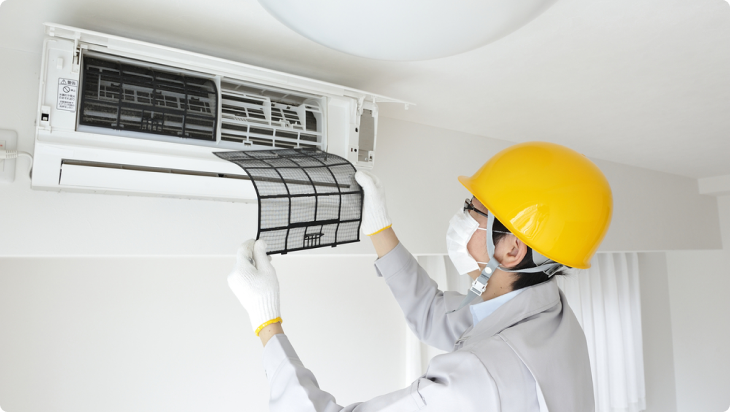However, in certain situations, investing in an HVAC unit may not be practical. The complexity of installation, cost of labor and additional parts required for installation can all add up quickly. Additionally, the space needed for a larger system could be unavailable, or the local regulations may limit where you can install it.
Before going through the installation process, it is important to consider all factors before making a decision on whether or not an HVAC system is worth it. Below we’ll explore why you should think twice before installing an HVAC system.
Complexity And Time Involved In Installation
Installing an HVAC system requires specialized knowledge and tools and can be time-consuming. The installation process can be complex, and homeowners may need to hire professionals for help. The size and type of the HVAC system can also affect the time and complexity of installation. Homeowners should consider the complexity and time requirements before installing an HVAC system.
Cost Of Installation And Maintenance
Purchasing, installing, and maintaining an HVAC system can be expensive. Homeowners should consider the upfront costs of purchasing and installing the system as well as the ongoing costs of maintenance. Proper maintenance is crucial for ensuring the system functions efficiently and effectively, but it can also add to the total cost of owning an HVAC system.
Lack Of Available Space
The available space in a home or building can impact the type of HVAC system that can be installed. Depending on the size and location of the unit, homeowners may need more space for the system they desire. This can limit the options for homeowners who need a specific type of HVAC system.
Difficulty Accessing The Home Or Building Structure
To install an HVAC system, technicians need direct access to the area where the system will be placed. This can be difficult in tight spaces or structures that are hard to access. Significant modifications may need to be made to the building structure before installation can occur.
Cost Of Installation & Replacement
The cost of purchasing, installing, and replacing an HVAC system can be significant. The cost can vary depending on the size and type of the system, as well as the cost of labor and additional materials needed for installation. Homeowners should consider the costs associated with HVAC system installation and replacement before investing in a system.
Maintenance Requirements
Regular maintenance is necessary to ensure optimal performance and extend an HVAC system’s lifespan. Maintenance tasks vary depending on the specific type of system. Homeowners should be aware of the maintenance requirements of their HVAC system and plan for them accordingly.
Green Advocates Who Oppose Using HVAC Systems
Environmental activists are concerned about the impact of HVAC systems on global warming due to their energy usage. Some people believe that HVAC usage is wasteful and unnecessary. However, HVAC systems can be effective in climate-controlled areas. Homeowners should consider the environmental impact of an HVAC system before deciding to install one in their homes.
Noise
HVAC systems can generate significant noise, particularly if the system is not properly installed or maintained. This can be particularly problematic in areas where noise pollution is a concern, such as in residential neighbourhoods or near hospitals or schools.
Air Quality
HVAC systems can be critical in maintaining good air quality within a home or building. However, if the system is properly maintained, it can contribute to better air quality and even lead to health problems. Homeowners should be aware of the importance of regular maintenance in ensuring good air quality.
Energy Efficiency
HVAC systems can be a significant source of energy consumption within a home or building. Choosing an energy-efficient system can help reduce energy usage and lower utility bills over time. Homeowners should consider the energy efficiency of different HVAC systems before purchasing.
Zoning
Zoning allows homeowners to independently control the temperature in different areas of their homes. This can be particularly beneficial for larger homes or buildings with multiple rooms or floors. However, zoning can add to the complexity and cost of an HVAC system, so homeowners should consider whether it is necessary for their needs.
Compatibility With Other Systems
HVAC systems can interact with other systems within a home or building, such as ventilation or air filtration systems. Homeowners should consider how these systems interact with their HVAC system and ensure they are compatible and properly integrated.
In Conclusion,
There are many reasons why installing an HVAC unit may only sometimes be practical. All the above factors should be carefully considered before installing an HVAC unit. By weighing these factors and considering the unique needs of their home or building, homeowners can decide whether an HVAC unit is a right choice.
FAQs
What are the installation requirements for HVAC systems?
Installation of an HVAC system requires special tools, knowledge and potentially professional help. The time required for installation will vary depending on the complexity of the unit and the structure in which it needs to be installed.
How much does installing and maintaining an HVAC system cost?
The cost of purchasing and installing a new HVAC system can be pretty high, depending on its size and type. Ongoing maintenance to ensure proper functioning is also necessary, which may increase the total expenditure over time.
Does size matter when installing an HVAC unit?
Yes, size matters when finding an appropriately-sized HVAC unit that fits your space constraints at home or in your office building. If there is not enough room in your structure, specific units may not fit; thus, they cannot be installed without modifications.
Is Professional Assistance Necessary To Install An HVAC System?
Generally, professional assistance is recommended when installing an HVAC system due to the complexity and expertise involved in the process. It may also be necessary if there’s a need for specialized tools or permits, or if any modifications have to be made to existing structures in order to fit the unit properly.

